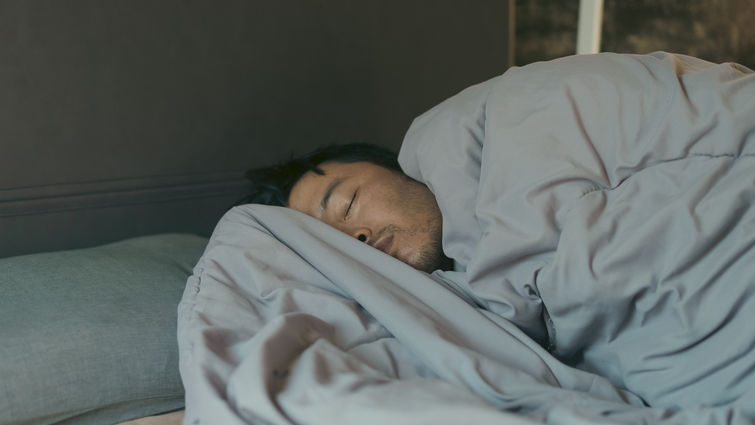

In the quest for a good night's sleep, many individuals turn to sleep accessories like mouth tape to enhance their slumber. Sleep medicine specialist Ramiz Fargo, MD, provides insight into the benefits of some tools.
Nasal breathing offers several advantages during slumber. It helps humidify and filter the air entering the lungs, promotes optimal oxygen exchange, and can reduce the chances of airway obstruction.
“Mouth tape essentially acts as a gentle reminder for individuals to breathe through their nose while asleep. It can be particularly beneficial for those who habitually breathe through their mouths during the night, which can contribute to snoring and even mild sleep apnea."
Limited but encouraging research
While the potential benefits of mouth tape are clear in theory, the scientific literature on the topic is relatively sparse. However, the studies that do exist have yielded promising results, especially in cases of mild sleep apnea and snoring.
"Though more extensive research is needed, the available evidence suggests that mouth tape can be a valuable tool for certain individuals. It's important to note that it's not a one-size-fits-all solution, and its effectiveness can vary from person to person," Fargo says.
One study found that mouth tape was associated with a significant reduction in snoring intensity among participants who typically breathed through their mouths during sleep. It also explored the impact of mouth tape on mild sleep apnea and reported improved sleep quality and reduced symptoms among participants.
Other sleep accessories:
Melatonin:
Despite what is commonly believed, Fargo says melatonin doesn’t cause sleepiness. Naturally produced in the body, the brain produces melatonin in response to darkness and helps with the timing of your circadian rhythm. Supplements do not induce sleepiness but shift the timeframe in which you’d naturally be sleepy. For short-term use, melatonin supplements can be helpful for a night of insomnia or jet lag.
However, Fargo cautions that melatonin should be used judiciously and under the guidance of a healthcare professional, as incorrect usage or dosage can lead to undesirable side effects like daytime fatigue, irritability, and restlessness.
Medical mouthguards:
For those dealing with mild to moderate sleep apnea, medical mouthguards offer a customized approach to treatment. Fargo emphasizes the importance of getting a professionally fitted mouthguard from a healthcare provider rather than relying on over-the-counter, self-molded options.
"Properly fitted medical mouthguards are designed to keep the airway open during sleep," Fargo says. "They can be a valuable alternative for individuals who cannot tolerate CPAP therapy or as a complement to other treatments."
Understanding your sleep patterns through these studies can lead to improved sleep quality, better daytime functioning, and enhanced overall well-being. Learn more about the Sleep Disorders Center and schedule a sleep study today.


